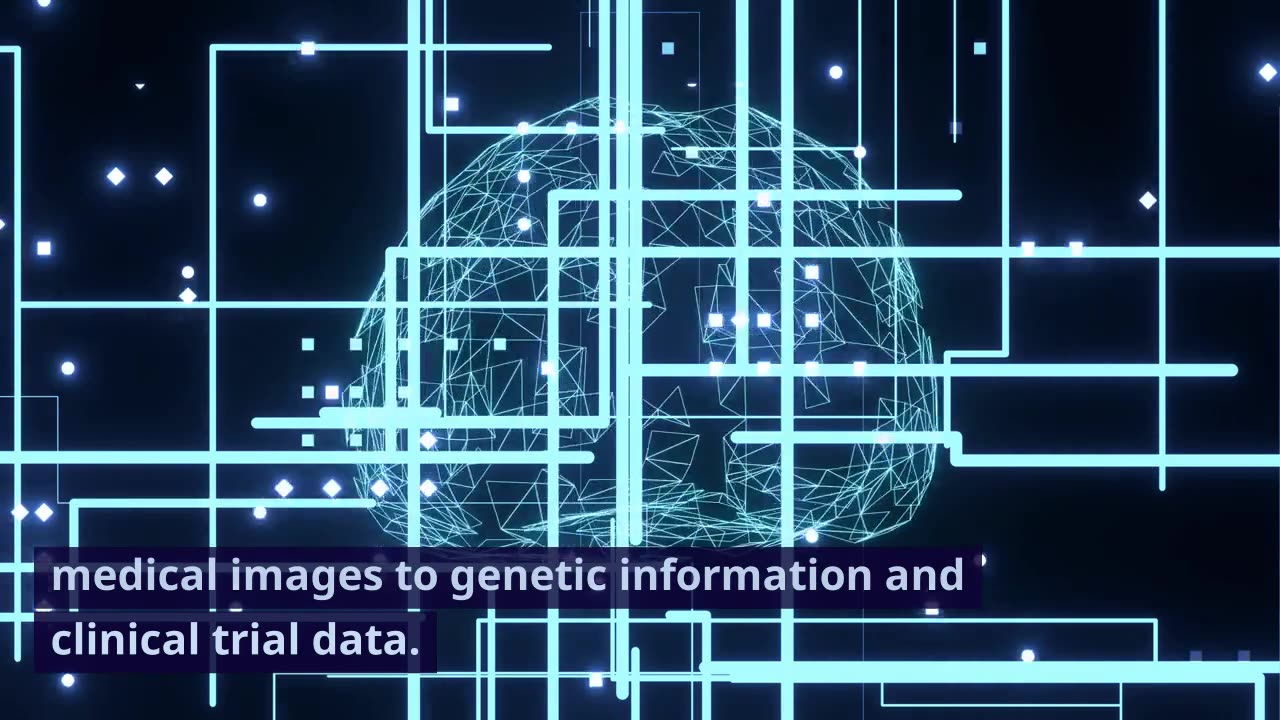Premium Only Content

AI and Medicine: Detecting Diseases and Personalized Treatments
AI and Medicine: Detecting Diseases and Personalized Treatments
In the ever-evolving landscape of modern medicine, the integration of artificial intelligence (AI) has ushered in a new era of diagnostic accuracy, treatment precision, and personalized care. The synergy between AI and medicine has given rise to innovative techniques for detecting diseases and tailoring treatments to individual patients, revolutionizing healthcare practices worldwide.
At its core, AI in medicine encompasses a diverse array of technologies, including machine learning, deep learning, natural language processing, and computer vision. These tools allow healthcare professionals to harness the power of vast amounts of medical data, ranging from patient records and genetic information to medical images and research articles. Through sophisticated algorithms, AI systems can sift through this information to identify patterns, correlations, and anomalies that might elude human analysis.
One of the most remarkable applications of AI in medicine is disease detection. Traditional diagnostic methods often rely on subjective interpretation, leading to variations in accuracy and potential delays in identifying illnesses. AI-driven diagnostic systems, however, excel at rapid and precise disease identification. By training on large datasets of medical images, such as X-rays, MRIs, and CT scans, AI algorithms can swiftly identify subtle abnormalities, aiding in the early detection of conditions like cancer, heart disease, and neurological disorders. This early detection significantly enhances the chances of successful treatment and improved patient outcomes.
Personalized medicine has also been transformed by AI. Each individual's genetic makeup, lifestyle, and medical history contribute to their unique healthcare needs. AI's capacity to analyze this multidimensional information enables the creation of tailored treatment plans that consider factors such as drug interactions, genetic predispositions, and patient preferences. By predicting a patient's response to specific treatments, AI can optimize therapeutic strategies, reducing the risk of adverse effects and increasing treatment efficacy.
Moreover, AI-powered virtual health assistants and chatbots are making healthcare more accessible and responsive. Patients can receive timely information, guidance, and even preliminary diagnoses through these interfaces, enhancing healthcare delivery in remote areas or during off-hours.
However, the integration of AI and medicine is not without challenges. Ethical considerations, data privacy concerns, and the need for regulatory oversight are crucial aspects that require careful navigation. Ensuring transparency in AI decision-making processes and maintaining a human-centric approach are paramount to building trust between healthcare providers, patients, and AI technologies.
In conclusion, the collaboration between AI and medicine has reshaped the medical landscape, offering unprecedented capabilities in disease detection and personalized treatment strategies. As AI continues to evolve and mature, it holds the promise of further advancing medical research, diagnostics, and patient care, ultimately leading to healthier populations and improved quality of life
-
 LIVE
LIVE
vivafrei
2 hours agoGhislaine Quiety Moved to Texas Facility? Tish Sues Trump Over Trans E.O. Canada Madness & MORE!
8,686 watching -
 LIVE
LIVE
Nerdrotic
1 hour agoWe Stand Behind Sydney Sweeney | Naked Gun | Fantastic Flop? - Friday Night Tights 365
1,030 watching -
 LIVE
LIVE
Dr Disrespect
4 hours ago🔴LIVE - DR DISRESPECT - STREAMING UNTIL I GET A 25 KILL GAME
6,318 watching -
 LIVE
LIVE
Akademiks
5 hours agoShannon Sharpe FIRED. KSOO Found Guilty! Gilbert Arenas ARRESTED! NBA Youngboy 14th kid OTW. 1/30
1,117 watching -
 2:09:16
2:09:16
Tucker Carlson
3 hours agoCandace Owens: Macron, Harvey Weinstein, and Why “Christ Is King” Totally Broke People’s Brains
82.2K156 -
 55:15
55:15
Michael Button
6 hours ago $0.13 earnedWhy Does This Ancient Symbol Appear Everywhere? - Archaic Lens Interview
1551 -
 2:03:12
2:03:12
Side Scrollers Podcast
5 hours agoBlabs is Absolutely DISGUSTED By Nintendo | Side Scrollers Live
13.2K3 -
 10:40
10:40
MTNTOUGH Podcast w/ Dustin Diefenderfer
6 hours agoBack with the 75th Ranger Regiment: MTNTOUGH Dives Deeper into America's Elite
75 -
 DVR
DVR
SportsPicks
4 hours agoCrick's Corner: Episode 57
864 -
 59:32
59:32
Sean Unpaved
4 hours agoNasty Boy Unleashed: World Series Champ Rob Dibble Unloads on the MLB & Trade Deadline
24.3K